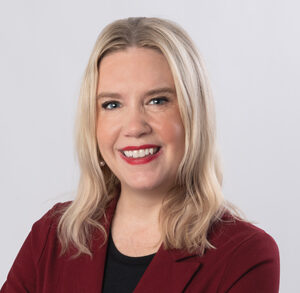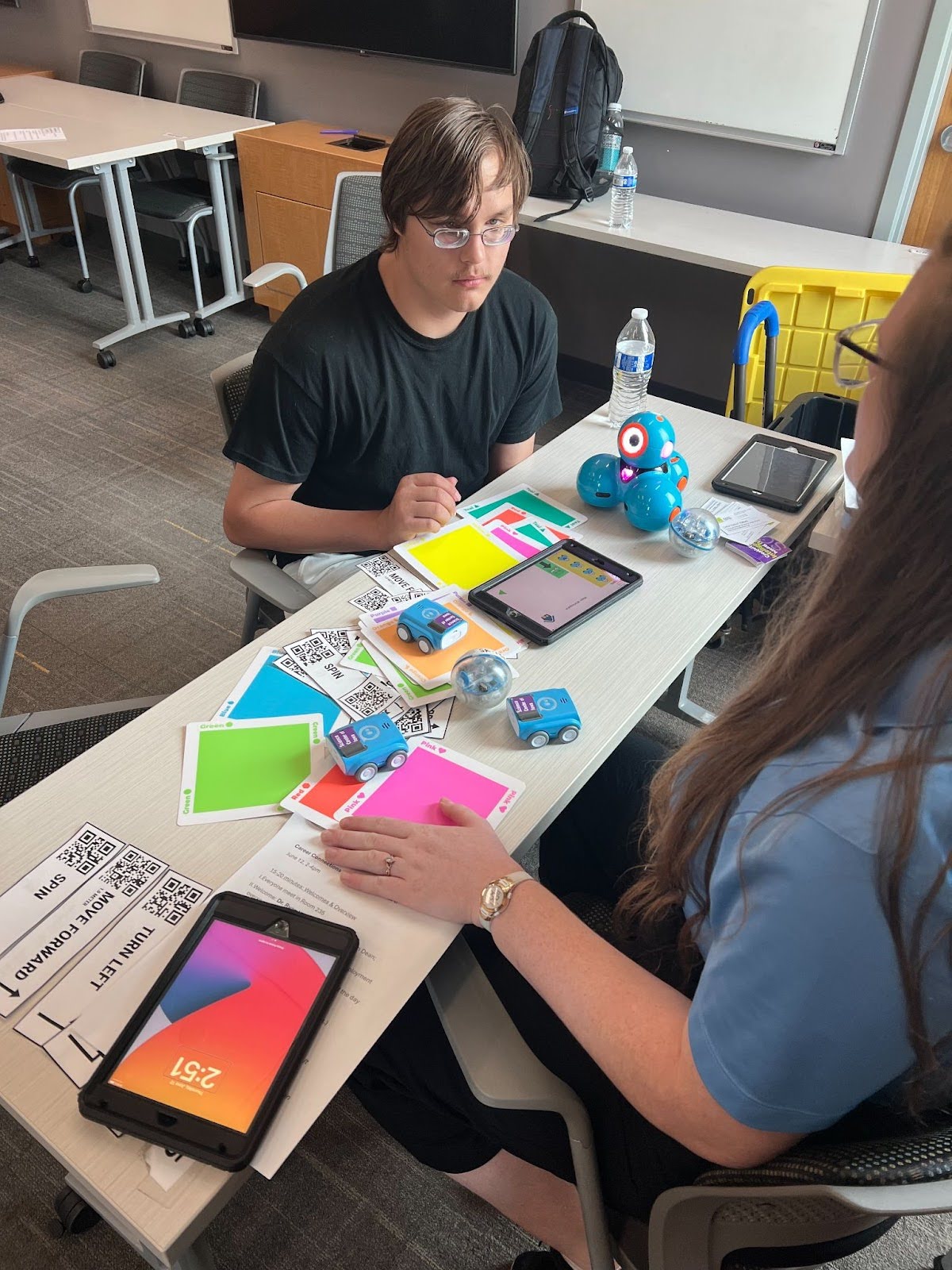Blind and low-vision students attend STEM fair at Drake

Lisa Rossi Jun 16, 2025 | 4:02 pm
2 min read time
579 wordsAll Latest News, Education, Innovation and EntrepreneurshipChristian Frantz, who is blind and has autism and ADHD, attended a career fair designed to show blind and low-vision high school students that they belong in STEM fields.
“My message to anyone with disabilities [is] don’t let others say you can’t, because you can,” Frantz, 20, said in the hallways of Collier Scripps Hall, Drake University’s School of Education.
The Career Connections STEM fair, held Thursday, was a collaboration between Drake University, the Iowa Department for the Blind and Sky’s the Limit Communications, as well as Blind Savvy USA, which provides blindness and low-vision training and consulting.
Lindsay Woodward, associate dean of Drake’s School of Education, said the partnership came into being after a doctoral student was researching the experiences of high school students who are blind or have low vision. Eileen Rivera Ley, founder and president of Blind Savvy USA, was one of his participants.
“Through that student, Eileen and I had a connection,” Woodward said.
Woodward said Rivera Ley and David J. DeNotaris, chief innovation officer for Sky’s the Limit Communications, found they worked well together.
“Eileen and David have a lot of experience running summer academies like this at universities,” she said.
DeNotaris said there is a low percentage of students with disabilities that get involved in the STEM fields.
“We all recognize that there’s a variety of reasons for that, but we have to do something to move the needle,” he said. “And having events like this stretches imaginations and hopefully raises expectations and more by improving opportunities for the students.”
The event was part of the Iowa Department for the Blind’s ACE Summer Academy, a week-long, immersive college readiness program for blind and low-vision high school students. Throughout the week, students lived on campus and learned everything from advanced assistive technology and time management to self-advocacy and on-campus safety.
At the event, students could try out robotics designed for blind and low-vision individuals. Vendors included representatives from East Penn Manufacturing, a Pennsylvania-based battery manufacturing facility, with a demonstration on engineering and logistics in the battery industry and the Science Center of Iowa, which focused on using artificial intelligence in science, education and beyond.
“I want these students to feel like opportunities are really, really limitless for them,” Woodward said. “There are so many things that they can do with their lives, with their careers. And then I think secondarily, I want them to feel happy to be at Drake. I want them to feel comfortable here.”
Rivera Ley said she counsels universities to not “go overboard” on accommodations.
“We really, truly have students … be self advocates and to ask for what they need,” she said. “So obviously, we try to create information in a non-visual way, using other senses, either large print or Braille or tactile or auditory input. But we don’t want things to go crazy, because that’s not realistic. So we try to teach the students how to speak up for themselves and tell people what they need and … problem-solve their … accommodations. So we often tell students, ‘You guys are the best problem solvers.’”
Rivera Ley is based in Baltimore and said her company is contracted with 20 states to do offer programming similar to Drake’s.
“Because we’re national, we can introduce students to some people doing jobs they may want to do. So maybe there isn’t a blind pharmacist here, but there’s a blind pharmacist that we can connect a student to. We use our network a lot,” she said.

Lisa Rossi
Lisa Rossi is a staff writer at Business Record. She covers innovation and entrepreneurship, insurance, health care, and Iowa Stops Hunger.










